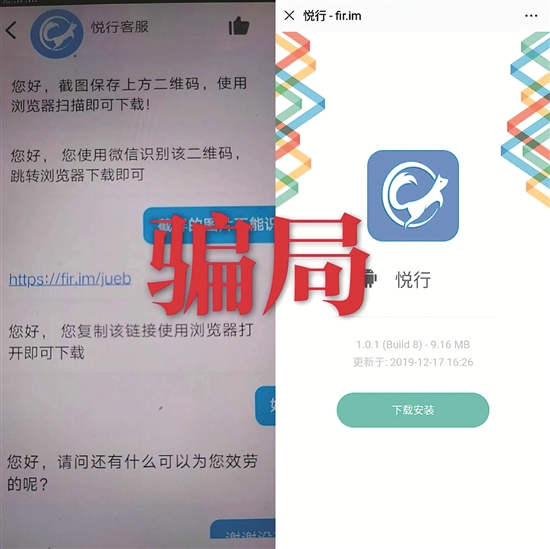常用词汇、词组辨析
本部分将常用易混词和词组归纳为127例,进行详细的辨析,并举例说明,以便于考生掌握使用。以下这些词大部分出现在大纲词表上,考生应在学习中特别注意加以区分。
(1)abroad adv. /aboard adv. /board n.&v.
前两个词是副词,词形相近,容易记混。这两个词的意思差异很大。abroad意为“在国外”;而aboard的意思是“登(机),上(车船等)”,与动词go搭配来表示登机等;最后一个词board常用来表示“登机,上船”,是动词。
例:I have decided to study abroad next year.
我已决定明年去国外读书。
It is time to go aboard.
现在该登机了。
We are asked to board half an hour before departure time.
起飞前半小时之内,我们必须登机。
(2)absorb v. /concentrate v.
absorb原义为“吸收”,引申词义为“吸引(注意力,精力等)”,常用于be absorbed in sth. 表示“被……吸引住,专注于”;concentrate的意思是“集中精神,全神贯注,聚精会神”,多与on或upon连用。
例:The picture absorbed my attention.
我被这幅画迷住了。
He found his brother absorbed in the watching of the match.
他发现弟弟在聚精会神地看比赛。
She tried to concentrate on her work in the university.
她试图专心致志地在大学里工作。
(3)accomplish vt. /complete vt.&a. /achieve vt.
accomplish的词义是“成功地完成每项任务”,尤其指经过一定努力后完成;complete主要指“全部完成了,没有剩下”,另外complete也是形容词,意为“完整的,完全的”;achieve与accomplish相近,指“经过努力最终达到预期的目标”。
例:I knew that I had accomplished something during my first year in Beijing.
我知道在北京的第一年我已经取得了一些成就。
I have just completed the revision of this report.
我刚刚完成对报告的修订。
He went to London without having achieved any success.
他一事无成便去了伦敦。
(4)accurate a. /correct a. /exact a.
accurate的意思是“精确的,准确的”;correct的意思是“正确的,没有错误的”;exact的意思是“确切的,正好的”。
例:I need an accurate figure on what we have lost in the battle.
我需要有关战事损失的准确数字。
This is not the correct answer to that question.
这不是那个问题的正确答案。
These are the exact tools those people used several thousand years ago.
这些人几千年前用的就是这种工具。
(5)acquire v. /require v. /inquire v.
这几个词词形、发音相近,容易记混。acquire的意思是“经过自己的努力获得,习得”;require的意思是“要求”;inquire的意思是“调查,询问,打听”。
例:She has acquired a new set of interests.
她现在又有了一些新的爱好。
The rules require us all to be present.
按规定我们都要出席。
Why don’t you inquire by telephone?
你为什么不打电话询问一下呢?
(6)actual a. /genuine a. /original a. /real a. /practical a.
actual指“实际上”、“事实上”存在或发生的事情,或人所共知的客观事实;genuine指与真实情况“一模一样”,“名符其实”,“真心的”;original指信息或消息等“原原本本”的情况,见解等“独到而非抄袭别人”;real指“真实存在的,不是假的或捏造的;practical指从实践、实用角度讲“实事求是的,可行的,有实际经验的”。
例:The actual cost of repairs was a lot less than we had expected.
实际的修理费用比我们预期的要低得多。
This ring is genuine gold.
这枚戒指是真金的。
This is an original play, not an adaptation.
这是一本原创剧本,不是改编而成的。
He is just a recent graduate experiencing the real world for the first time.
他只是一个刚毕业首次体验现实世界的毕业生。
This kind of product is worthless for all practical purposes.
这种产品毫无实用价值。
(7)adapt v. /adopt v.
这两个词拼写只差一个字母,非常容易记混。adapt的意思是“改编,改作……用,适应”;adopt是“收养,采用,采纳”。
例:I suggest that he should adapt himself to new conditions.
我建议他要适应新的环境。
This play has been skillfully adapted from the original novel.
改编者很熟练地将原小说改编成一部戏剧。
We can adapt this old house for use as a garage.
我们可以将这座旧房改造成一个车库。
Her mother had adopted a disapproving attitude.
她母亲采取了不赞成的态度。
They have decided to adopt me as their own daughter.
他们已决定收养我做女儿。
(8)adequate a. /sufficient a.
adequate常用来表示“充足的,完备的,完善的,胜任的”;sufficient则表示“在数量上是足够的,多的”。在表示充足的含义上前者更强调足够用来做某事,而后者则表示多,不缺乏。
例:His wages are adequate to support these people。
他的收入足以养活这些人。
Two pounds of orange will be sufficient for the party,don’t buy more.
两磅柑桔就够聚会用的了,不必再多买了。
(9)administration n. /management n.
这两个名词都是与管理有关的名词。administration的主要含义是“行政管理,政府等”,而management比前者的含义广,它可以指“包括企业管理在内的各种管理,经营”,也可以指“行政管理”。
例:An executive should be experienced in administration.
一个管理者应有行政管理的经验。
Nothing was done by the last administration.
上届政府什么事也没干。
The management of the business has been done very well.
这个企业管理得很好。
She is going to report the whole thing to the management.
她将向领导做全面汇报。
(10)admit v. /allow v. /permit v. /approve v.
这几个词都有“同意,批准,允许”的意思,要注意区别运用。admit的意思是“同意进入,允许进入”(常与to连用);allow泛指“一般的同意,允许”;permit常用来表示“上下级之间的允许,批准”;approve的主要意思是“批准(条文,协议等),赞同”(常与of连用)。
例:This ticket will admit two to the opening ceremony of the exhibition.
这张展览会开幕式的入场券可允许两人入场。
His mother didn’t allow him to watch TV before he finished his homework.
不做完作业,他母亲不许他看电视。
This state permits the sale of alcoholic beverages.
本州允许销售酒精类饮料。
Do you think my father would permit this?
你认为我父亲会同意这样做吗?
Congress approved the budget.
国会批准了该预算。
I do not approve at all of his moral character.
我根本不赞同他的道德品格。
(11)advantage n. /merit n. /virtue n.
advantage的主要意思是“优势,好处”,为可数名词,常用于短语take advantage of sth.;merit的主要意思是“优点,长处,好处,可取之处”,是可数名词,也是不可数名词;virtue的主要意思是“美德,品德,优点”,主要从事物的品质或价值的角度讲优点。
例:I said we could see certain advantages in a change.
我是说我们可以在改变中看到其优势。
He knew the merit of his work.
他了解他的工作的优点。
One of his virtues is that he never gets angry.
他的美德之一就是他从不生气。
(12)affair n. /event n. /incident n.
affair的意思是“有关的事,事务,活动等”,如foreign affairs(外事),也常指婚外恋;event指“每日里发生的事件,事或活动,比赛项目”;incident同event意思相近,指“事件,事”,尤指较重大的、有影响的政治事件等。
例:They have no right to interfere in the domestic affairs of Iran.
他们无权干涉伊朗的内政。
The affair remained a complete mystery.
那件事至今还是个谜。
The important event of the week was the big storm.
那一周中的大事就是那场大暴风雪。
Coming events in the village include a dance-show and a treat for the school children.
村里即将发生的大事,就是招待学校的孩子们和舞蹈表演。
Our team won the silver medal in this event.
我们队获得该项目的银牌。
On the very day before I left, an incident occurred.
事件就发生在我要离开的当天。
There were several incidents on the frontier between the two nations in the 50s.
50年代两国边境发生了许多大事。
(13)afford v. /offer v. /provide v.
afford的意思是“有条件担负,支付得起”;offer的意思是“给予,提出,出价”;provide的意思是“提供,供给,为……做准备”,常与for, with一起连用。
例:John can’t afford to give so much time to it.
约翰花不起这么多时间来做这件事。
I don’t think we’ll be able to afford any travel any more.
我想我们没钱再旅行了。
They were friendly and even offered assistance.
他们很友好,甚至表示愿意帮助我们。
Mrs. Baines offered no comment on Susan’s situation.
贝恩太太对苏珊的处境未做任何评论。
On Sundays his landlord provided dinner as well as breakfast.
周日,他的房东为他既提供早餐又提供晚餐。
He provided for his family by working in a factory。
他靠在工厂做工来养家。
We must provide for the future.
我们必须为将来做好准备。
(14)alarm n.&v. /warn n.&v.
alarm的意思是“提醒,警告”,有使警觉,使做好准备的意思;warn的意思主要指“警告,告诫”,有事先告诉可能发生的事,警告说……的意思。
例:There were several alarms during the night but no actual air raid actually took place.
当夜,空袭警报拉响了数次,但并没有飞机来袭。
He warned us that the road was icy.
他警告我们说道路很滑。
(15)alike a.&adv. / identical a.
这两个词都有长得一样,长得像的意思。alike是副词也是形容词,只做表语用;identical是形容词,意思是“同一个,完全相同”,除了作表语,也可以在名词前做定语,可用于词组be identical with。
例:My brother and I are exactly alike.
我兄弟和我长得一模一样。
It’s the identical coat which was stolen from my wife.
这就是我妻子丢失的那件上衣。
Your pen is identical with mine.
你这支钢笔和我那支完全一样。
(16)area n. /region n. /zone n. /district n.
area通常用于面积可测量或计算的地区,界限明确,但不指行政区划。如:60 years ago, half French people were still living in the rural area. region常指地理上有天然界限或具有某种特色(如气候、自然条件)自成一个单位的地区。如:the Arctic regions北极地区。另外region也指较大的行政单位。如:Xinjiang Autonomous Region. zone通常指地理上的“(地)带”,尤指图表上的环形地带。如:refugees from the war zone从战争地区来的难民。district指行政划分的区,比region小,通常指市镇内的一区。如:Hai dian district海淀区
(17)alive a. /live a. /vivid a. /lively a.
alive指“活着的,处于工作状态的”的意思,和dead反义,常作表语。live指“有生命的”,即having life,“正处于工作状态”的意思。vivid指人的表情、故事等“生动”、“逼真”、“活泼”等。lively指人及生物等充满生机和活力,即“活泼的”、“充满生气的”。
(18)affect v. /influence v.
这两个词都有“影响”的意思。
1)affect vt. 作“影响”讲时可分三种情况:
① 直接的、有形的力量作用于某事物或事件并使之发生变化。
例:They try to affect the size of a crop by using fertilizer.
他们施肥料以使庄稼长大。
② 用于表示对某事物或事产生不好的影响。
例:Exposure to intense light affects one’s eyes adversely.
暴露在强光之下会损害眼睛。
③ 指对另外一个人感情上的影响,感染,感动。
例:Music affects some people very strongly.
音乐对一些人有强烈的感染力。
He was much affected at the sad sight.
他深为这一悲伤的情景所感动。
2)influence通常指“不易觉察到的、潜移默化的影响”,往往是间接的,通过说服或以实际行动树立榜样而对他人产生影响。
例:He was influenced by a middle school teacher to take up the study of medicine.
他受到一位中学教师的影响而学了医。
(19)allowance n. /tuition n.
allowance 的意思是“生活费,补贴”;tuition的意思是“学费”。
例:They gave her a small allowance but didn’t pretend to like her work.
他们给她一小笔生活费,但对她的工作却不甚满意。
At this school the tuition is free,but you have to pay for the books you need.
这所学校免收学费,但书费要你自己负担。
(20)amaze v. /amuse v.
这两个词词形相近,容易混。amaze的意思是“使惊愕,使惊讶”;amuse的意思是“使开心,使高兴”。这两个词用于被动式时,后而都接介词at (be amazed/amused at sth.)。
例:She was amazed at the man’s sympathy with life.
这个男人对生命的同情态度让她感到很惊讶。
A clown’s job is to amuse the spectators.
马戏团小丑的工作就是逗观众开心。
(21)announce v. /declare v. /claim v.
announce的意思是“通知,宣布(结果,决定等)”;declare的意思是“宣布(公告,法律等),声明”;claim意为“声称,要求得到,认领”。
例:She announced that the singer would give one extra song.
她宣布歌手将再加唱一首歌。
The United States and China had declared their normalization of diplomatic relations.
中美双方宣布了双边外交关系的正常化。
They declared martial law in the mining communities.
他们宣布对矿区实行军事管制。
If anybody owns this camera, will he or she please come forward and claim it?
请这部相机的失主前来认领。
She claims to be as good a pianist as Themelis!
她声称自己的钢琴弹得与Themelis一样棒。
(22)annoyed a. /upset a.
annoyed的意思是“不快的,恼火的”(比angry的程度要低),从生气的角度讲不高兴;upset的意思是“不高兴,难过,不舒服”,从感到别扭的角度讲不高兴。
例:She was annoyed at your saying that.
你这么说让她很不自在。
I’ll be quite upset now, if you don’t come.
如果你不来,我会很不安的。
(23)apparatus n. /instrument n. /device n. /appliance n.
apparatus主要指“器械,装置,仪器,器官”;instrument主要指“仪器,工具,乐器”;device指“器具,装置,仪表,手段”;appliance指“器具,器械,家用电器等”。
例:The television men set up their apparatus, ready to film.
摄制组的人架好机器准备开拍。
All surgical instruments must be sterilized before use.
手术前,所有手术器械必须消毒。
The television receiver is an electronic device.
电视接收机是一种电子设备。
The kitchen is equipped with modern appliances.
厨房装备了现代化的炊事用具。
(24)appoint v. /assign v.
appoint的意思是“任命,指派,委任”,后多跟职位一类的名词;assign的相关意思是“分配,分派,指定”,后多跟具体的工作。
例:They appointed him Minister of Education.
他们任命他为教育部长。
She was appointed to the Chairmanship of the Committee.
她被任命为委员会的主席。
The problem was assigned to a commission.
这项任务交给了一个特别委员会去处理。
I assign you to wash the dishes.
我分配你去洗盘子。
(25)approach n. /method n.
这两个词都可以表示方法。approach常指“针对某一问题的解决处理方法”,后跟介词to;method泛指“任何方法”,适用范围比approach要广,后常跟介词of。
例:There is no very easy approach to mathematics.
数学研究上没有什么捷径。
It is surprising that they should choose this method of passing the evening.
很奇怪,他们怎么会选择这种方式来打发这个晚上。
(26)approve v. /permit v. /admit v.
approve指较正式地对某种事情表示认可、赞同或批准;permit指允许、不禁止某人干某事;admit指容纳,允许进入,承认。
例:The mayoress approved the new building plans.
女市长批准了新建筑计划。
She won’t permit dogs in the house. 她不准许家中有狗。
He was admitted to the commission. 他被该委员会接纳。
(27)arise v. /arouse v.
arise是不及物动词,意为“发生,产生,出现”;arouse是及物动词,意为“引起,激起,唤起”。
例:A democratic movement has arisen. 一场民主运动应运而生。
We aroused him from his deep sleep. 我们把他从睡梦中唤醒。
(28)assemble v. /resemble v.
这两个词词形与发音相近,assemble意为“集中,集合,装配”;resemble意为“相像”。
例:People began to assemble on the platform. 人们开始向月台聚集。
In that factory they can assemble a car in less than 15 minutes.
在那家工厂,工人们不到15分种就装配好一部汽车。
Smith resembles his father very much in all his ways.
史密斯各方面都象他的父亲。
(29)assure v. /ensure v. /insure v. /reassure v.
assure和ensure都有“保证,确保”之意。assure指十分肯定地向某人保证某事一定要发生,使其放心,因此后面往往跟人做宾语。ensure则强调能保证某种行为或某事件的结果一定发生。insure特指保险,替……做保险;reassure意为“使人放心,使人安心,再向……保证”。
例:I assure you of the reliability of the information.
我可以向你保证这消息是可靠的。
Ensure that it is written into your contract.
你得保证把这一点写到合同中去。
Is your house insured against fire?
你的房子做了防火保险了吗?
The woman was worried about the dangers of taking aspirins, but her doctor reassured her.
这名妇女担心服用阿司匹林会带来危险,她的医生让她放心,不会有危险的。
(30)assess v. /access n.
这两个词词形与发音很相近,容易搞混。assess是动词,意为“评估,估价”;access是名词,意为“通路,能接近或使用”,后常跟介词to。
例:The value of the property has been assessed at $70,000.
这处房产的估价为7万美元。
They sent someone to assess the value of the factory.
他们派人去评估那家工厂的价值。
The only access to the building is along the muddy track.
通往那座建筑物的惟一通道就是这条泥泞的小路。
Only senior students have the access to this reading room.
只有高年级的同学才能进这间阅览室。
(31)attach v. /stick v.
attach的主要意思是“附加,附着”,强调附加;stick的主要意思是“粘贴,贴附于,紧贴着,固定”,强调紧密。
例:Wires are then attached to the ends of the electrodes.
然后将导线接到电极的一端。
There was a nice little present for everyone, with a suitable poem attached.
每人都有一份礼物,每份礼物都附有一首得体的小诗。
Just stick 2 stamps on the envelope.
在信封上贴上两张邮票。
He stuck a rose in his buttonhole.
他在扣眼里插了一枝玫瑰。
(32)attribute to/owe to/due to
attribute to意为“归因于,认为是……的结果”;owe to意为“……应归功于……”;due to意为“由于,因……造成,归功于”,常用作表语或状语。
例:Mr. Dolittle attributes his good health to careful living.
杜德先生把自己的健康体魄归功于审慎的生活方式。
If I have improved in any way, I owe it all to you.
如果我有所进步的话,那应该归功于你。
His absence was due to the storm.
由于风暴他未能出席。
He failed due to carelessness.
他的粗心导致了他的失败。
(33)wake v. /awake v.&a. /waken v. /awaken v.
wake为动词,意思是“叫醒,醒来,唤醒”;awake意为“醒来,叫醒”,作形容词时意为“醒着”;waken是动词,意为“叫醒,闹醒”;awaken是动词,意为“叫醒”,多用于引申意义“觉醒,引起”。这四个词中最常用的是wake,尤其在口语中;awake和awaken多用其引申意义;awake常用作不及物动词;awaken/waken多用作及物动词。
例:My brother wakes at seven each morning.
我弟弟每天早上7点钟醒来。
This at once awakened suspicion.
这马上引起了大家的怀疑。
When he awoke Joseph was beside him.
当他醒来时,约瑟夫就在他身边。
The national spirit awoke.
民族精神觉醒了。
She gently wakened the sleeping child.
她轻轻地叫醒熟睡的孩子。
(34)award v.&n. /prize v.&n.
award作动词意为“发给……奖品等”,作名词意为“奖品,奖金等”;prize作动词意为“珍视”,作名词意为“奖品,奖金”,也可以指“宝贵的物或人”,prize还可以作形容词,意为“获奖的”。
例:The Olympic winner received a gold medal as an award.
奥林匹克冠军获得了金牌的奖励。
They awarded him the Nobel prize.
他们为他颁发诺贝尔奖。
Prizes will be given for the three best stories.
三部最佳作品将获奖。
Jane soon became popular for a prize rose.
简因那枝获奖玫瑰而远近闻名。
As a secretary she was a prize.
她真是一个不可多得的秘书。
(35)aware a. /notice v.&n.
aware意为“意识到的,认识到的”,常用词组be aware of;notice意为“注意到,察觉到”,notice还可以作名词,意为“通知,注意”。
例:She was not aware of his presence till he spoke to her.
直到他跟她讲话她才注意到他的存在。
She is politically aware.
她很有政治头脑。
Did you notice anything else peculiar?
你有没有注意到任何特别的东西?
They sent me a notice.
他们给我发了一个通知。
(36)behave v. /conduct v. /act v.
behave指人的行为、举止和表现。本为不及物动词,但用作此义时可与反身代词连用;conduct与behave在作“行为”、“举止”讲时同义,但强调自我控制、约束;act作“行为”、“举止”讲时,为不及物动词,不能和反身代词连用。
例:The child behaved (himself)badly at the party.
那孩子在聚会上的表现很差。
She conducted herself stoically in her time of grief.
她悲伤时,表现出奇的冷静。
She acts like a born leader.
她的举止象个天生的领导。
(37)blame v. /scold v.
blame的意思是“责备,怪罪,埋怨”;scold的意思是“(厉声)责骂,斥责”。
例:I don’t blame you, I blame myself.
我不怪你,我怪我自己。
He blamed his failure on his teacher.
他把自己的失败归咎于他的老师。
Her father scolded her for being too free with the soldiers.
她父亲斥责她与这些兵交往太随便。
(38)breed v. /feed v.
breed意为“养殖,培育,繁殖,教养”;feed意为“喂养,饲养”。
例:Some animals will not breed when kept in cages.
有些动物关在笼子里就会很难繁殖。
Many farmers breed cows and sheep.
许多农民养牛和羊。
She was feeding the baby with porridge.
她正用粥喂自己的宝宝。
The cows were feeding quietly in the meadows.
牛群在草地上静静地吃草。
(39)burden n. /load n.
burden意为“负担,包袱,担子”,多为贬义;load意为“装载物,负荷,工作量”,也可指“思想上的负担,压力”。
例:They don’t want to add to the government’s burden.
他们不想给政府添包袱。
He was faced with the severe financial burden.
他面临着严重的财政负担。
The bridge has been built to support very heavy load.
建这座桥是为了使重载车也能通过。
The load on her mind grew lighter.
她的思想负担轻了许多。
(40)campaign n. /champion n.
这两个词词形与发音相近,容易弄混。campaign意为“(竞选)运动,战役”;champion意为“冠军”。
例:The Germans were defeated in the campaign in North Africa.
德国人在北非战役中打了败仗。
The Party suggested a renewed campaign to raise production and practise economy.
该党建议发起新的一轮运动来提高生产,发展经济。
The champion issued a challenge to all other boxers to fight him.
拳击冠军向所有其他拳击手发出挑战。
(41)canal n. /channel n. /tunnel n.
canal意为“运河等人工开凿的河流”;channel的意思是“海峡,渠道”,频道;tunnel的意思是“隧道,地道”。
例:The big canal was completed in five years.
修建这条大运河花了5年时间。
The English Channel separates France from England.
英吉利海峡将英法两国隔开。
You should go through the official channels if you want the government to help.
如果你想得到政府的帮助,你就必须通过官方渠道。
The railroad passes under the mountain through a tunnel.
铁路经隧道从大山下面通过。
(42)candidate n. /applicant n. /competitor n. /representative n.
candidate意为“候选人,应征者”;applicant意为“申请人”;competitor意为“竞赛对手”;representative意为“代表”。
例:This time our candidate got 260 votes.
这一次我们的候选人获得了260张选票。
There were three applicants for the job.
这项工作有3个人申请。
Tell the competitors for the next race to come here.
告诉下一项比赛的参赛者到这里来。
James is our representative at the meeting.
詹姆斯在会上是代表我们的。
(43)cargo n. /commodity n. /goods n.
cargo一般指“船或飞机运载的货物”;commodity意为“商品”;goods用来泛指“商品,货物等”。
例:These planes can carry a cargo of six tons.
这些飞机能运载6吨货物。
Wine is one of the many commodities that France sells abroad.
葡萄酒是法国向海外销售的许多商品之一。
The goods were brought round early this morning.
今天一大早,这些货物就被带来。
Consumer goods production was to go up by 7 percent.
消费品生产计划增长7%。
(44)case n. /condition n. /situation n. /occasion n.
case常指事物的特定情况,事情真相和始末,如“病例”、“案件”等;condition指某时某处事情发展、存在的状况、状态或条件,一个人的“感觉如何”;situation往往指一组情况或一些情况的综合,常译为“情况”、“形势”;occasion指特定的“时机”、“场合”、“良机”。
例:All the people involved in this case must be present.
所有与这起案件有关的人都必须到场。
Conditions in the office made concentration impossible.
办公室的状况根本不可能使人专心。
The current international situation is not optimistic.
目前的国际形势不容乐观。
It is not very suitable to sing such a song on this formal occasion.
在这种场合唱这样一首歌是不太合适的。
(45)chance n. /opportunity n. /advantage n. /fortune n.
chance着重指偶然或意外的可能,有时也指“好机会”,这时可用“opportunity”替代;opportunity着重指“好机会”,带有“适逢其时、正好便于行事”之意;advantage指有利的条件或优势;fortune指人“交好运气”,有一定迷信的色彩。
例:There is a chance that I will see him these days.
这几天我有可能见到他。
The 2008 Olympic Games will bring us many opportunities and challenges.
2008年奥运会将给我们带来许多机遇和挑战。
It is to your advantage to invest wisely.
明智地投资对你很有利。
It is also believed that fireworks will bring good fortune in the coming year.
据说放鞭炮还能为人们在新的一年里带来好运气。
(46)contest n. /match n. /game n. /play n. /competition n.
contest指“人与人之间进行争夺以取得优胜”之意;match指对手之间进行的比赛、竞赛等力量或智慧较量,通常指具体的比赛;game指决胜负的游戏,通常有一套规则;美国称比赛为game,英国称比赛为match;play最一般用语,指通过游戏或运动达到娱乐目的文体活动;competition指对手之间以某种手段或智慧、力量等压倒对方而取胜。
例:She got the first prize in a recent beauty contest.
她在最近的选美比赛中夺冠。
A critical football match is being transmitted on CCTV 5.
中央五套正在转播一场关键的足球比赛。
The team is preparing for taking part in the coming winter games.
这支队伍正在为即将举行的冬运会做准备。
The school uses some methods which combine language lessens with the play.
这所学校采用了某些方法,将语言课与玩耍结合起来。
To get the advantage in the competition, you must have enough preparation in advance.
为了在竞争中取得优势,你必须之前做好充足的准备。
(47)carry out/perform/realize/come true/come into being
carry out指把预定的计划、规则等变成现实,其意相当于fulfill;perform是do的正规说法,指“执行”、“进行”某种任务或计划等;realize指把梦想、理想、雄心等变成现实,为及物动词;come true不及物用法,指梦想、理想等随时间前进而变成现实;come into being指原来没有的事物现在“开始存在”或“产生出来”。
例:It is time for us to carry out this plan. 是我们实施这个计划的时候了。
The surgeon performed the operation. 医师做了手术。
He has finally realized his dream as a writer in his childhood.
他终于实现了他童年时代想成为作家的梦想。
His dream as a writer in his childhood comes true finally.
他童年时代想成为作家的梦想终于变成了现实。
Recently a new anti-Japan trend has come into being.
最近产生了一股新的反日倾向。
(48)compose v. /compile v. /create v. /produce v. /conceive v.
compose指把各种材料和构思编排成文章、乐曲等;compile着重指汇集资料而后加工成书籍、词典等;create着重指从无到有地进行“创造”、“创作”等;produce最一般用词,指通过一切方法“提出”或“生产”、“制造”出产品或思想成果;conceive指头脑经过思考、想像“想出”主意、办法、假设等。
例:The great musician composed a wonderful musical piece during a night.
这名伟大的音乐家在一夜之间就创作出了一首精美绝伦的音乐作品。
It will take a long time and energy to compile a dictionary.
编撰一本字典要耗费很多的时间和精力。
create a poem 创作一首诗;create a new life 创造一个新的生命
produce a videotape 制作一个录影带;produce a car 生产汽车
The sales manager has been conceiving a plan to increase profits all the night.
销售经理整晚都在构想一个增加利润的计划。
(49)companion n. /fellow n.
companion意为“同胞,伙伴,志趣相投的人”;fellow意为“同伴,同伙,家伙,一起共事的人”。
例:My fellow travelers made good companions.
我的旅伴是不错的搭档。
The boy went to join his fellows on the playing field.
这孩了到操场上和其他小朋友玩起来。
(50)competent a. /capable a. /qualified a.
这三个词都有可以做某事的意思,competent主要指“能胜任,称职,具有某种技能”;capable指“能干,有能力”,常用词组be capable of;qualified主要指“合格,有资格做某事”。
例:Be sure to get a competent electrician for the job.
一定要找一位称职的电气工程师来做这个工作。
John is a very capable and very intelligent boy.
约翰是一个非常有能力、非常聪明的孩子。
I don’t believe she is capable of winning the game.
我不相信她有能力赢得这项比赛。
I am a qualified doctor, who will not hurt you.
我是位合格的医生,不会伤害你的。
(51)component n. /element n.
component意为“部件,元件,成分”,强调每部分是独立的、与其他不同的个体;element意为“元素,成分,要素”,强调每部分为最小的、不可再分的元素或单元。
例:The engine has more than 300 components, made of a number of different materials.
这部引擎有300多个不同材料制成的零件。
Carbon is an element, while carbon dioxide is a compound.
碳是一种元素,二氧化碳是一种化合物。
Honesty, industry, and kindness are elements of a good life.
诚实、勤劳和善良是美好生活的要素。
(52)conserve v. /reserve v. /preserve v.
conserve意为“保存,保护,节约”;reserve意为“保留,预定”;preserve意为“保存,保持,腌制,防腐”。
例:We must conserve our woodlands for future generations.
我们必须为子孙后代保护好我们的林地。
I reserve the right to make my own decisions.
我保留自己做决定的权利。
I reserved a table for four at Newland restaurant.
我在新大陆餐馆定了一张四人桌。
A commission was set up to preserve historical houses in the city.
成立了一个委员会来保护城里的那些历史建筑。
Policemen preserve order in the streets.
警察在街上维持秩序。
Fish are preserved in ice and salt until they are sold.
鱼在出售前一直存放在冰和盐当中。
(53)convert v. /transform v.
convert意为“改变,转变(信仰等)”,主要指把事物从一种状态改变为另一种状态,使其有了新的用途或特征;transform意为“变形,改变”,主要指外形,外表上的改变。
例:These machines convert cotton into cloth.
这些机器将棉花变成布。
Many Africans were converted to Christianity.
许多非洲人皈依了基督教。
He transformed the old kitchen into a beautiful sitting room.
他把一间旧厨房改造成一间美丽的客厅。
(54)convince v. /persuade v.
convince意为“说服,使相信”;persuade意为“劝人做,使同意做,使相信”。
例:I am not quite convinced by what he has said.
他的话还不足以让我信服。
He convinced me that Howard was innocent.
他使我相信霍华德是无辜的。
She persuaded Shelley to adopt a new job.
她劝告雪莉接受新的工作。
She persuaded him that she was telling the truth.
她使他确信她说的是实情。
(55)crash v. /crush v. /smash v.
crash指“车辆、飞机等的碰撞”;crush指“轧碎,辗碎”;smash指“打碎,摔碎”。
例:I dropped the plate and it smashed.
我失手将盘子掉在地上摔碎了。
One of his legs was crushed in an accident.
他的一条腿在车祸中轧断了。
The airplane crashed into a house.
那架飞机撞到了一所民宅上。
(56)danger n. /risk n. /hazard n.
这三个词都可以用来表示危险。danger意为“面临危险的可能性或实际存在的危险,灾害”;risk与danger相比,意味着更多的遭受损失或失败的可能性,常用来指“有风险,冒着风险做某事”;hazard较danger更正式,多指“无法预见,无法控制的危险”。
例:They held a discussion to reduce the danger of military confrontation between the two nations.
他们开会讨论了如何降低两国间发生军事冲突的危险。
There is a risk of you catching cold.
你有患感冒的危险。
The disease is spreading and all children under 5 are at risk.
这种病正在蔓延,5岁以下的儿童都有染上该病的危险。
Icy road is a hazard to all the drivers, especially the green hand.
结冰的公路对所有的司机来说都是一种危险,对新手来说尤其如此。
(57)decline v. /reduce v. /decrease v.
decline指“数量、质量、重要性等慢慢减弱,下降,衰退的过程”;reduce多指“范围、强度、数量的减少,降低”,强调结果,主语往往是人;decrease意为“减少,降低”,强调减少,衰退的过程。
例:During the crisis years the production of coal declined 41.6 percent.
经济危机期间煤产量降低了41.6%。
We have reduced the price of the coat from $100 to $50.
我们将这款外套的价格从100美元降到了50美元。
Water consumption decreased during the winter.
冬天耗水量下降了。
(58)defect n. /fault n. /mistake n. /error n.
这四个词容易弄混,实际上可分为两组:defect, fault指毛病、缺点;mistake和error指错误。defect指表面上的缺陷或人或物本质上的缺点,尤指生产品所存在的缺陷,着重指由于某种欠缺而影响到产品的质量,以致完全妨碍了某种功能的发挥。fault侧重于造成错误的个人责任,还可指人或物的缺点。fault指物时,特指缺乏某种要素而不完善,有毛病,过失。mistake指错误,由于有缺陷的判断,知识不足或粗心造成的失误或错误。error指错误,比较正式,常用于表现无意识地偏离正确的行为、主张或信念。
例:The machine is unsafe because of the defects in it. 这台机器因为有毛病,不安全。
He suffers from a hearing defect. 他听觉有毛病。
例:There is a small electrical fault in the motor. 马达里的电路上有个小毛病。
He could never accept the fact that he had been at fault. 他无法接受自己有错这个事实。
例:This mistake was made entirely through your fault. 这个错误完全归咎于你。
The waiter made a mistake over the bill. 服务员把账算错了。
Your paper is full of spelling mistakes. 你的论文拼写错误很多。
It is a mistake to leave my camera at home.
把摄像机留在家里真是失策。
Professor Zhang found a technical error in your paper.
张教授在你的论文中发现了一个技术性的错误。
The accident was the result of human error.
这事故是人为的错误造成的。
(59)despair n.&v. /desperate a.
despair是名词和动词,意为“沮丧,绝望,灰心丧气等”,常与in一起搭配;desperate是形容词,意为“绝望的,迫切的,不顾后果的”。
例:Susan cried loudly in despair.
苏珊绝望地失声痛哭。
Don’t despair, things will get better soon.
别灰心,情况很快就会好转的。
He was desperate after the failure of his last attempt.
最后一次尝试失败后,他绝望了。
The prisoners became desperate in their attempts to escape.
囚犯们不顾一切地企图越狱逃跑。
(60)deserve v. /justified a. /reasonable a.
deserve是动词,意为“应当享受……,值得……,应当(受到)……”;justified为“有道理的,正当的”;reasonable意为“合情合理的,公道的,公平的”。
例:Mary really deserves a long holiday after two weeks’ work on end.
玛丽连续工作了两个星期,她的确应享受一次长假。
I’m perfectly willing to pay reasonable price.
我非常愿意为一个合理的价格付款。
The editor is justified in refusing your lousy report.
你这份报导写得真糟糕,编辑当然要拒发了。
(61)distinguish v. /identify v.
distinguish意为“区分,识别”,多与from,between等介词连用;identify意为“认出,识别出”。前者强调区分两个事物的差异,而后者多指从中认出,证明(是谁,是什么)。
例:It was difficult to distinguish anything in the dark.
黑暗中很难辨清物体。
Can you distinguish cotton cloth from nylon?
你能分清棉布和尼龙制品吗?
Could you identify your bicycle among a hundred others?
你能从100辆车中认出自己的自行车吗?
Fred identified the bag as his by telling what it contained.
弗雷德讲出了包内存放物,从而认领了自己的包。
(62)discover n. /invent n. /conceive n. /devise n.
discover指首次“发现”原来早已存在的事物;invent指根据某种原理首次“研制”、“创造”、“发明”某种新东西;conceive构想出某种主意、方案或计划,着重指用脑筋设想、想像;devise着重指从多种可能性中反复研磨、试验,想出某种计划或设计出新东西。
例:Columbus discovered America in 1492. 哥伦布于1492年发现了美洲。
Who invented the steam engine? 谁发明了蒸汽机?
He is conceiving a new novel. 他正在构思一部新的小说。
The man devised a new system for handling mails after experimenting many times.
这个人在经过反复实验后设计出了一种新的信件处理系统。
(63)disturb v. /bother v. /interrupt v.
disturb意为“打扰,扰乱,使不安”,多用被动语态,指程度较深的烦恼,甚至心理方面的失常;bother意为“打扰,麻烦,费心”,常指暂时的,无关紧要的闲扰,在主动语态中bother有“有意打扰”的含义;interrupt意为“打断,使中断”。例如:
The child continually disturbed the class.
这个孩子不断地扰乱课堂秩序。
Emotionally disturbed children need special care and treatment.
情感失调的孩子需要特别的关怀和治疗。
I’m sorry to bother you, but can you tell me the time?
对不起,打扰你了,请问几点了?
Don’t bother about meeting me.
不必费心来见我。
It is not polite to interrupt a speaker.
打断别人的讲话很不礼貌。
He interrupted his work to answer the question.
他中断了自己的工作来回答问题。
(64)diversity n. /variety n.
diversity是不可数名词,有时作单数用,前面可加冠词a,意为“多种多样”,多指从总体的角度看里面包含着很多不同的东西;variety既是可数名词也是不可数名同,作为不可数名词时,意为“各种各样”,多指从个体的角度看每个个体都与其他不同,不单调,有变化。
例:Mary has a great diversity of interests;she likes sports, travel and photography.
玛丽兴趣广泛,她喜欢体育运动、旅游和摄影。
What the students requested most often was variety within the lesson hour.
学生们最经常的要求就是课堂上要花样翻新。
(65)durable a. /permanent a. /perpetual a. /long-lasting a.
durable指衣物的经久耐用或友谊、和平或品德等经得起考验的性质;permanent指永久不变的,如“永久的”住宅、地址或职业等;long-lasting指事物的旷日持久、历时已久的性质。
例:a durable fabric 耐穿织物;a durable friendship 持久的友谊
The universal human are yearning for a permanent peace.
全人类都在渴望实现一种永恒的和平。
Solving the pollution problem is a long-lasting battle.
解决污染问题是一场旷日持久的战役。
(66)environment n. /surroundings n.
surroundings 指一个人四周的生活环境,是从周围事物这一客观着眼。environment指包括空气、水、人类等在内的生态环境、自然环境,也可指精神环境,均从环境对人的感受、道德及观念的影响着眼。
例:The guest house stands in picturesque surroundings. 宾馆四周环境优美如画。
Everyone prefers to live in clean and comfortable surroundings·
人人都愿意生活在清洁舒适的环境中。
A child’s character is greatly influenced by his home environment.
孩子的性格受家庭影响很大。
(67)examination n. /investigation n. /inspection n.
examination一般用词,可指粗略的察看或对事物的细节也进行细致的考察;investigation指对某一事件、案件进行的从头至尾的调查研究;inspection强调按照确定的标准对事物进行的检验、视察。
例:When shall we receive the examination results? (= exam)
我们什么时候可以收到考试结果?
a medical examination体格检查
The police investigation will take weeks.
警察的调查将进行几个星期。
The mayor made an inspection of the school.
市长视察了这所学校。
(68)extend v. /expand v. /expend v. /stretch v. /spread v. /scatter v.
extend意为“延伸,扩展,伸出”;expand意为“张开,展开,膨胀”;expend意为“用掉,耗费掉”;stretch指把某样东西变长,通常不是加长,而是用拉伸的方法使之变长;spread指使某物摊开、展开或消息等向四面八方传播开;scatter指把种子、垃圾或其他碎物撒开。
例:She extended both hands towards her mother.
她向母亲伸出双臂。
The road extends for miles.
这条路绵延数英里。
He expanded his short story into a novel.
他将自己的一篇短篇小说扩展为一部长篇小说。
Metal expands by heating.
金属加热后会延展。
They had expended a great amount of time on the project.
他们在这项工程上耗费了许多时间。
He tried to stretch the banner between two poles. 他努力把旗在两杆之间拉直。
spread her fingers张开手指;spread the news 传播消息
We spread the bicycle parts out on the floor.
我们将自行车零件在地板上摊开。
The farmer scattered the corn in the yard for the hens.
农民把谷子撒在院子里喂鸡。
(69)feeling n. /emotion n. /passion n.
均可表示“感情”。feeling泛指一般的情绪,在心理学上特指受到外界刺激所产生的感觉。emotion指受到刺激所产生的喜怒哀乐等激动情绪。passion指往往不能自持的极强烈的情绪,如强烈的愤怒、爱好、恋情、情欲等。
例:a feeling of happiness幸福感;a feeling of shame羞愧感
His voice was choked with emotion. 他激动得说不出话来。
My current passion is to play chess. 我现在的激情是下棋。
(70)fragment n. /segment n.
fragment意为“片段,碎片”,强调不完整,碎的概念;segment意为“瓣,事物(如网)的一段等”,突出一部分的概念。
例:She dropped the bowl on the floor, and it broke into fragments.
她失手将碗掉在地板上摔成碎片。
He overheard fragments of their conversation.
他偷听到他们谈话的一些片段。
An orange is easily pulled apart into its segments.
我们可以很容易地把桔子剥成一瓣一瓣的。
The shaded part is a segment of the circle.
阴影部分是圆的一部分。
(71)gather v. /assemble v. /collect v.
gather指把东西集中在一起或把人召集在一起。assemble指装配,集合,聚集。这个词表明所涉及的人或物有确定的通常是紧密的联系,表示涉及的人是出于共同的兴趣或目的而聚集。collect指为了特定的目的把东西经过仔细挑选后收集起来。
例:A group of students gathered in front of the administration building.
一群学生聚集在行政大楼前面。
assemble the jury召集陪审团;assemble a machine装配机器
collect antiques收集古物;collect stamps集邮
(72)glimpse v.&n. /glance v.&n.
glimpse意为“瞥见一眼”,有时表示一点点,多从结果的角度讲,常用于短语get a glimpse of/catch a glimpse of; glance意为“很快地看一眼,一瞥”,多从动作的角度讲,常与at连用,词组为at a glance, glance through/over。
例:We glimpsed the field through the trees.
透过树丛我们瞥了一眼田野。
We caught a glimpse of his face as he ran past.
他从我们身边跑过时,我们看了一眼他的长相。
I knew a glimpse of truth.
我了解一些真相。
I had a glimpse of his true feelings when I saw how worried he was.
当我看到他是如此着急时,我隐约意识到一点他的真实情感。
I took a glance at the book.
我飞快地浏览了一下这本书。
She glanced quickly at them all.
她很快地扫了他们一眼。
(73)ignore v. /neglect v.
ignore意为“漠视,不理睬”;neglect意为“忽视,遗漏,疏忽”。
例:Ann ignored her friend’s confusion.
安娜不理睬她的朋友现在迷惑不解的样子。
The boy was so rude that we decided to ignore him.
那个男孩太粗鲁,我们决定不去理睬他。
You’re neglecting your work.
你工作太不上心了。
I’ve neglected to clean your room this morning.
今天早上我忘记打扫你的房间了。
(74)ill a. /sick a. /faint v.
ill指“不健康”,“坏”;英语用ill作表语当“生病”讲,美国则用sick。sick作“生病”讲,美国更常用,此外,常指“恶心”、“想呕吐”、“讨厌”等意。faint指“头晕”、“失神无力”。
例:The child has been ill-treated in the orphan house.
这孩子在孤儿院里一直受虐待。
ill effects副作用
She feels sick in buses. 她在公共汽车上觉得很恶心。
She fainted because of the heat. 她热昏过去了。
(75)equipment n. /facility n. /appliance n. /instrument n.
equipment指成套的装备,设备,器具;facility指服务性的设施或为使主要设备工作方便而造的辅助设备;appliance指用于特定目的的工具,器具或家用器具等;instrument指科研、实验仪器或乐器等。
例:office equipment 办公室设备;travel equipment旅行设备
public facilities公共设施;health care facilities. 医疗保健设施
household appliances家用电器
musical instrument乐器;optical instrument光学仪器
(76)imply v. /suggest v. /infer v.
imply指暗含某种意思而不明言的“暗示”;suggest指用间接的、旁敲侧击的办法表示出自己的看法;infer表示推断, 指由证据或根据得出结论或由特定情况推测。
例:Silence sometimes implies consent. 沉默有时暗指同意。
His erect and careless attitude suggested assurance and power.
他直截了当和粗心的态度让人想到确信和力量。
I infer from your letter that you have not made up your mind yet.
我从你信中推想,你还没有下决心。
(77)initiate v. /launch v. /start v. /set off
initiate用在较正式的场合,表示“发起”、“提议”,口语可用begin替代;launch指公开地有一定声势地“发起”或“开始, ”某项事业或运动;start指事物从静止状况开始运动,或开始某种实际活动等;set off常指“动身”、“出发”或“引起”某种突然的行动。
例:The two countries initiated their trade with each other until recently.
直到最近两国之间才开始贸易往来。
The organization launched a campaign to support environmental protection.
该组织发起了一项运动来支持环境保护。
It is three years since he started his studies in the college.
自从他开始在那所大学学习已经是三年了。
What else should we do before we set off ?
在我们动身前还有其他什么要做的吗?
(78)intend v. /volunteer v. /offer v. /attempt v.
intend指内心中具有某种尚不明确的意向或决定,即“意欲”、“想要”干什么;volunteer强调出自个人内心的自觉自愿的行动;offer指主动地向对方提出建议、给予奉献或帮助等;attempt指尝试采取某种行动以观察是否能够成功,暗指对其行动的结果缺乏成功的把握。
例:I intend to go shopping this weekend.
Many Chinese college students volunteer to be a teacher in remote and poor area.
许多中国大学生志愿到边远贫困地区支教。
He offered us his help, which made us grateful.
他主动提出给我们帮助,让我们很感动。
The criminal attempted to escape, but he failed.
那名罪犯企图逃跑,但是没有得逞。
(79)merge v. /combine v. /join v. /unite v.
merge指数家公司或商行合并为一家;或使原来的事物在新事物中消失或被吞没;combine指把原来的事物结合起来成为新的统一体;join指把一些东西结合在一起,或连接在一起;unite与combine相近,尤指把各种力量团结成一个整体,侧重于结合起来的人或物的协调性或一致性。
例:Lately two big software companies has merged, which has aroused wide media concern.
最近两家大的电脑公司合并,引起了媒体的广泛关注。
The two principal political parties have combined to form a government.
两个主要政党已经联合起来组成政府。
The children joined hands. 孩子们拉起手来。
We must unite together in order to realize our common purposes.
为了共同的目标我们必须团结起来。
(80)memorize v. /remember v. /remind v. /reflect v.
memorize指有目的地记忆一些东西的内容;remember指在头脑中保存着某一事物或印象,加以思索,即可想出;remind指使人回想起某人某事,或提醒某人让他记住某事;reflect指仔细思索记忆中的往事,意为“反省”、“细想”。
例:The computer can memorize and deal with millions of data.
这台计算机能够存储并处理数百万个数据。
Do you remember to lock the door?
记着锁门了吗?
These photos remind me of my college life.
这些照片使我回想起我的大学时光。
You should often reflect the mistakes you have made.
你应该经常反省一下自己曾经犯过的错误。
(81)migrant n. /emigrant n. /immigrant n.
这三个词都与移居者有关,由于前缀不同,含义不同:migrant移民,immigrant移入者,即入境移民。emigrant是ex的变体(=out):移出者,即出境移民,指自本国移居他国者。
(82)only a. /sole a. / single a. / unique a.
only常用词,指“惟一的”,含“不会再多”之意;sole语气比 only 强,也较庄严,指“单独的”,即“一类中只有这一个”;single强调“单个的,单一的”;unique指“独一无二的”、“无可匹敌的”。
例:This is the only solution to our current difficulty.
这是解决我们目前的困难的惟一的办法。
The court has the sole right to decide.
法庭拥有独有的决定权。
a single room单人间;a single bed单人床
That building is unique because all the others like it were destroyed.
那座建筑很独特,因为所有像它那样的其他建筑都毁坏了。
(83)original a. /creative a.
除了其他意思之外,这两个词都有“创造”的含义。original强调“原创的”,比creative的含义窄一些,突出发源地的概念,原创的概念;creative强调“创造,有创造性”,突出从无到有的创造过程。
例:The masses have boundless creative power.
人民大众有着无穷的创造力。
James was one of the most creative writers.
詹姆斯是最有创造性的作家之一。
He found it hard to form an original opinion.
他觉得很难有新意。
She won an award for the most original design.
她获得了最佳创意设计奖。
(84)particular a. /special a.
particular意为“特殊的,特别的,某一特定的”,强调相对general而言的特定性,有时可与specific互换使用;special意为“专门的,特殊的,独特的”,含有不寻常,不一般的意思。
例:That particular house is very nice,although the rest of them are not.
其他的房子都不怎么样,就那所房子非常不错。
I have something very particular to tell you.
我有事要专门对你讲。
Tonight is a special occasion and we have something very special for dinner.
今晚是个不寻常的时刻,我们的晚餐也很特别。
(85)possession n. /procession n.
这两个词词形与发音相近,易混淆。possession意为“占有,拥有,财物”;procession意为“行进,行列”,常与in一起用。
例:Possession of wealth does not necessarily bring happiness.
有钱不一定会给人带来快乐。
The stupid old man soon lost all his possessions.
那个笨老头很快就把他的财产丢光了。
The workers marched in procession to the president’s office.
工人们列队向总裁的办公室走去。
The wedding procession moved slowly down the aisle.
婚礼的队伍在过道间缓慢走过。
(86)principal a.&n. /principle n.
这两个词发音与词形相近,很容易搞混。principal作形容词意为“主要的,首要的”,作名词时意为“校长,本金”;principle为名词,意为“原则,原理”。
例:He has been the principal singer of our troop.
他是我们团的主唱。
Those are the principal points I want to explain to everybody.
这些便是我要向大家解释的要点。
She has been the principal of this school for ten years.
她已经在这所学校里当了10年校长。
What he said is against my principle.
他的话与我的原则相悖。
(87)range n. /scale n. /scope n.
range意为“距离,范围”;scale意为“规模,等级”;scope的含义较窄,意思是“范围,机会”。
例:The transmitter has a range of 10,000 miles.
发射机的发射范围是方圆1万英里。
We teach the full range of ball room dances.
我们教授所有的交谊舞。
On a scale of 1 to 10 how do you rate his performance?
如果用1到10给他打分的话,你给他的表演打几分?
The scale of the pollution problem was much worse than scientists had predicted.
污染的规模大大超过了科学家先前的预测。
The politics of the country is really beyond the scope of a tourist book like this.
国家的政策问题的确超出了象这样一本旅游书的内容范围。
(88)recent a. /current a.
recent意为“最近,新近的”;current意为“当前的,现时的”。
例:The bicycle is a recent purchase.
这辆自行车是最近才买的。
Of these recent magazines, only one is still current.
这些近期杂志中只有一本是当月的。
The current fashions are more casual than those in the 90s.
现在的时尚比90年代的时尚更要随意。
They talked about the current events when they met again that night.
那晚他们见面时谈了一些时事。
(89)remind sb. of/warn sb. of/remember sb. to sb.
这三个词组都有向某人提及某事的意思。warn sb. of sth. 语气最严肃。常指“警告某人有某种危险,要某人不要做某事,等等。remind sb. of指要某人想起某事,重申其重要性或认为值得记起。remember sb. to sb. 指求某人代自己向某人问好。
例:Please keep in mind what the teacher warns you of. 请记住老师警告你的话。
This hotel reminds me of the one we stayed in last year.
这家旅馆使我想起我们去年住过的那家。
Don’t forget to remember me to Lyle when you see her, please.
见丽莉时别忘了替我向她问好。
(90)resident n. /inhabitant n.
两个词都有居民的含义,resident多指“住在大楼、公寓等住所的住户或城市居民”,inhabitant多指“居住在某一地区的居民”。
例:The inhabitants of this tropical island are very friendly.
这个热带岛国的居民对人很友好。
The residents of the town are proud of its new library.
城里的居民都为他们的新图书馆感到骄傲。
Only resident can drink in the hotel bar.
旅店酒吧只对住店客人开放。
(91)resist v. /oppose v.
resist意为“反抗,抵抗,顶住”;oppose意为“反对”,常出现在习语be opposed to中,表示“反对,违反,相反”。
例:The nation was unable to resist the invasion.
这个国家无法抵御入侵。
No boy can resist the temptation of video games.
男孩子很难抵御电子游戏的诱惑。
He opposed the idea immediately.
他马上表示反对这个想法。
This sort of thing is utterly opposed to all my principles.
这种事完全违反我的原则。
(92)security n. /safety n.
security意为“安全,保卫”,较safety正式,多指安全感,国家、社会的安全;safety指“处于安全状态,没有危险”,具体指人身、货物等的安全。
例:For security reasons the passengers have to be searched.
出于安全原因,对所有乘客都要进行检查。
The captain is responsible for the safety of the ship.
船长对船只的安全负责。
(93)see v. / catch sight of /spot v. /recognize v.
see指经过有意识地使用视觉器官才能“看到”,另外多指明白,理解;catch sight of是指被看到的东西进入了眼帘,而不是有意识地去使用视觉器官,可译为“瞥见”;spot指从人群中或同类事物中认出一个;recognize指认出,认识到是以前曾见过的事物。
例:We must give the image of what we actually see.
我们一定会对我们看到过的东西留下印象。
I caught sight of him when the thief ran into the shop.
当那个贼跑进那家商店时我瞥见了他。
She spotted his husband in the crowd.
她从人群中认出了她的丈夫。
I recognized Peter although I hadn’t seen him for 10 years.
虽然我有10年没看到彼得了,但我认出了他。
(94)show v. /demonstrate v. /express v. /indicate v.
show最常用词,指被别人看见或把某物指给别人看,教别人如何做。demonstrate正式用词,在展示、表明事情是如何做时可与show通用,但不作“被看见”讲。express指通过语言或表情,表达出自己的想法和要求。indicate指通过信号或标志,指示出方向、意图或要求等。
例:I will show you how to use this computer.
我来给你演示如何使用这台计算机。
The technician demonstrated the laws of physics with laboratory equipment.
该技术员用实验装置演示了物理定律。
I can’t express my gratitude too much.
无论怎样都不足以表达我对你的谢意。
She indicated her approval with a nod. 她点头表明同意。
(95)slow v. /postpone v. /delay v.
slow含有速度有意减慢的意思;postpone指把应做的某种事务搁在一边,意即延搁,或是将原定的事推迟、延期;delay常指由于难以克服的障碍而将某事耽搁或延迟。
例:The driver slowed the car before coming to a full stop.
司机在车完全停下来之前先减慢车速。
We postponed the match from March 5th to March 19th.
我们把比赛从3月5日推迟到3月19日举行。
The bus was delayed by a cloudburst.
由于大暴雨,公共汽车来迟了。
(96)special a. /particular a. /peculiar a. /specific a.
special指与普通的、平常的、一般的东西在某些方面不相像;particular指一类人或事物中特定的、特殊的、独一无二的一个,还可指挑剔的;peculiar指稀奇古怪,与正常的情况、表现相比而使人奇怪罕见;specific指针对某一用途、某种疾病等有特殊作用或特殊效果的。
例:a special occasion特殊场合;a special treat 特别的款待
She has a particular preference for Chinese art.
她对中国艺术有特别的爱好。
Our history teacher has always been a little peculiar.
我们的历史老师总是有点古怪。
a specific remedy for cancer 治疗癌症的特效药;
a specific answer 具体明确的答案
(97)spoil v. /ruin v. /damage v. /break v.
spoil指由于缺乏管教或长者的过分溺爱而“娇惯坏”等;ruin指由于娇惯或纵欲的结果把某人“毁掉”;damage指损害,造成损失或通过陷害之类手段有意“毁坏”某人的名声或健康;break指身心受到摧残而失去勇气、信心等。
例:The child is spoiled by the excessive love from his grandparents.
爷爷奶奶过分的爱把这孩子惯坏了。
I was ruined by that law case.
我被那场官司搞得倾家荡产。
The storm did a lot of damage to the crops.
暴风雨使庄稼受到了很大损失。
The case damaged greatly the reputation of the official.
这件案子使那名政府官员的名誉大大受损。
The sudden bankrupt of his company broke him heavily.
公司的突然破产使他遭受了严重的打击。
(98)stable a. /steady a.
stable意为“稳定,牢固的”;steady意为“稳固的,平稳的”。
例:The chair isn’t very stable.
这把椅子不太结实。
He finally built a stable business operation.
他终于建立起稳固的商业运作体系。
The table isn’t steady.
这张桌子不太稳。
He is making steady progress in his work.
他的工作正蒸蒸日上。
(99)stress n. /emphasis n.
stress作名词的意思是“重点;紧张,压力”;emphasis意为“强调,重点”。表示强调时两个词在口语中常可互换使用。
例:He puts the emphasis on discipline in his teaching.
他在教学中十分强调纪律。
Quite clearly the emphasis was on reading skills in our English classes.
很清楚,我们的英语课重点是阅读技能。
Her parents always put a lot of stress on good table manner.
她的父母总是强调进餐时的礼貌举止。
The stresses of work made her ill.
工作的压力使她病倒了。
(100)vacation n. /vocation n.
这两个词的词形与发音相近,容易搞混。vacation的意思是“假期,假日”;vocation的意思是“职业”。
例:I think I’ll take a vacation this weekend.
我想这个周末我将去度假。
A doctor’s vocation is medicine.
医生是以行医为职业的。
(101)verify v. /witness v. /prove v. /confirm v.
verify强调通过目击者证言或查对数据“证实”、“证明”某事物的确切性;witness指目击,见证,提供证据,作证;prove指通过经验或实验证明事物的确切性或原理的可靠性;confirm指通过正式的手续“批准”或“确认”某种选择或看法。
例:The police have collected large quantities of evidences to verify their suspicion.
警方已经收集了大量的证据来证明他们的怀疑。
The little girl witnessed that the criminal murdered the woman.
那个小女孩目睹了该罪犯谋杀了那个妇女。
He has proved his courage in battle. 他已在战斗中证明了自己的勇气。
Please confirm your telephone message by writing to me.
请给我来封信,好进一步证实你在电话中传达的消息。
(102)victory n. /prize n. /reward n. /triumph n.
victory指战争或比赛中获得的胜利,特别是指敌人或者对手的最终失败;prize指对比赛获胜者或因创立某种业绩而颁发的奖、奖赏、奖金等;reward指因某人做了好事而给予的报答、酬谢或赏金;triumph指在战争或竞争中取得的辉煌胜利或由之而产生的胜利感。
例:They finally got the final victory in that battle after a 7-day struggle.
经过7天的奋战,他们终于获得了那场战役的最终胜利。
The boy got the first prize in the speech contest.
这个男孩在演讲比赛中得了一等奖。
The man obtained a reward of $900 from the police for catching the criminal.
这名男子因抓获罪犯而从警方那里得到了900美元的酬金。
If a man has a talent and learns how to make full use of it, he has gloriously succeeded, and won a triumph few men ever know.
如果一个人具有才干并学会了如何充分利用它,他已经大大的成功了,并获得了只有极少数人才知道的成功。
(103)wander v. /wonder v.
这两个词词形与发音相近,容易混淆。wander意为“游荡,漫游”;wonder意为“想知道,感到奇怪”。
例:We wandered all over the countryside.
我们在乡下到处游荡。
I wonder what they call these flowers.
我不知道他们管这些花叫什么。
I wonder that he wasn’t injured in the accident.
我真没想到在事故中他居然毫发无损。
(104)warning n. /remark v.&n. /notice v.&n. /advertisement n. /announcement n.
warning指为避免某种不良后果出现及时发出的的警告;remark指对人或事发出的有见解性的评论或观后感;notice指较为正式的官方通告、通报或对不熟悉情况者发出的警告;advertisement指发布广告或大肆宣扬;announcement指宣告,发表,公告,使公开知道的行为。
例:Because of her warning, I was careful.
由于她的提醒,我很小心。
It is rude to remark upon the appearance of other people.
对别人的外表评头论足是粗鲁的。
The school put us on notice for chronic lateness.
因经常迟到学校将我们的名字公布在公告栏上。
The company made many advertisements on TV and radio to publicize their new products.
这家公司在电视和广播上做了很多广告来宣传他们的新产品。
He waited for the announcement of the result of the competition with bated breath.
他屏息静气地等待宣布竞赛结果。
(105)worth a. /worthy a. /worthwhile a. /valuable a.
worth多作表语用,指对某一用途有特殊价值的或相当于多少价值,后接doing;worthy指有价值的、配得上的、与……相符相称的,除在书面语体中用作定语外,一般作表语,后接of doing;worthwhile指值得花时间去研究或付诸实施的;valuable指某物具有实用性方面、交换方面或其他方面的价值、意即“有价值的”、“贵重的”。
例:I don’t think this book is worth reading twice.
我认为这本书不值得看两遍。
This novel is worthy of wide concern from the media/being widely noticed by the media.
这部小说值得媒体给予广泛的关注。
Do you think it is worthwhile to spend so much money carrying out this project?
你认为花这么多钱来实施这个项目值得吗?
valuable information重大的消息;valuable advice重要的建议
(106)a few/a little
两个词组都表示“少许,一些”。a few与可数名词一起用;a little多与不可数名词一起用。
例:A few people know it.
有几个人知道。
Don’t worry, you still have a little time.
别担心,你还有一点时间。
(107)a great deal/a great many
两个词组都表示“大量的,许多”。前者与不可数名词一起用;后者与可数名词一起用。
例:A great deal of work awaits us.
大量工作等着我们去做。
We have a great many things to do at present.
我们目前有许多事要做。
(108)(be/get/become)accustomed to/used to
be accustomed to表示“习惯于某事”;used to意为“曾经做”。
例:Have you got accustomed to the weather here?
你已经习惯这里的天气了吗?
He used to play guitar with my cousin.
他过去和我的表哥一起弹吉他。
(109)add to /add up to
add to表示“加到……,增加,增强”;add up to表示“总计,总起来看,意味着……”。
例:She added sugar to her tea.
她往茶里加了点糖。
The music added to our enjoyment.
音乐使我们更加愉快。
The money he spent add up to more than $2,000.
他一共花了2,000多美元。
Your long answer just adds up to a refusal.
你这么罗嗦的回答,意味着你将会被人拒绝。
(110)as well/as well as
as well的意思是“也,还”;as well as的意思是“不仅……,还”。
例:It has been a great grief for him as well!
这对他来说也是极大的悲恸。
She is a talented speaker as well as being a musician.
她不但是音乐家还是一个天才的演讲者。
(111)at last/in the end
at last的意思是“最终,最后”,常指经过努力后的最终结果;in the end的意思是“末尾,结尾,事情的最后时刻”。
例:At last I found my lost bicycle in a deserted house.
我终于在一所废弃的房子里找到了我丢失的自行车。
I hope everything will turn out all right in the end.
我希望结束时一切顺利。
(112)after all/at all
after all的意思是“毕竟”;at all的意思是“一点也(不)”。
例:Don’t be fussy about what he did. After all he is only a child.
别对他的所作所为太苛求,他毕竟还是个孩子。
I’m not at all interested in what he said.
我对他说的话根本不感兴趣。
(113)break out /break through/break down
break out意为“爆发,进发”;break through意为“打破,冲破”;break down意为“抛锚,出故障,失败”。
例:Riots and disorders have broken out.
这里已经发生了骚乱与混乱。
He broke out laughing.
他突然大笑了起来。
The Allies sought to break through the German lines.
盟军试图突破德军的防线。
Scientists hope to break through soon in their fight against cancer.
科学家们希望在与癌症的较量中尽早有所突破。
Our car broke down on our way to the village.
在去乡下的路上,我们的车抛锚了。
Their negotiation broke down because neither side would compromise.
由于双方都不让步,他们的谈判最终破裂了。
(114)at all cost/by all means/by means of
at all cost意为“不惜一切代价”;by all means意为“竭力,千方百计”;by means of意为“用……手段(方法、方式)”。
例:Mr. Jackson intended to save his son’s life at all cost.
杰克逊先生打算不惜一切代价抢救他儿子的生命。
We must get there by all meanings before he has a chance to break the news to her.
我们必须尽全力在他有机会把消息透露给她之前赶到那里。
The fisherman saved himself by means of a floating log.
渔夫靠一块漂浮的圆木幸免于难。
(115)call for/call up
call for意为“来找人,要求,需要(采取行动)等”;call up意为“打电话,想起,征召入伍等”。
例:I’ll call for you at nine.
我9点钟来探望你。
Success school calls for much hard work.
成功需要付出努力。
On reaching the city, she called up Lester.
一到达这个城市她就给莱斯特打电话。
He was called up for military duty.
他应征入伍。
The picture of the Capitol called up memories of our class trip.
国会大厦的图片使我想起我们班的旅行。
(116)come about/work out/figure out
come about意为“发生,造成”;work out意为“经过努力做出,得出,算出”;figure out意为“想出,算出,弄明白”。
例:How did this dangerous state of affairs in Europe come about?
欧洲危险的形势是如何造成的?
I tried to figure out what he meant.
我想弄明白他的意思。
We must work out a better method of saving paper.
我们必须想出节约纸张的更好方法。
We must work out how we are going to do it.
我们必须想出该如何做这件事。
(117)come round/come to
come round意为“复原,苏醒,恢复健康等”,round是副词;come to意为“涉及,来到,苏醒,恢复知觉”,to是介词,后面跟的consciousness等词常省略。
例:The man was stunned, but he came round after a time.
那个人先是一愣,但很快便恢复了常态。
When it comes to mathematics, I’m all thumbs.
一提起数学,我是一窍不通。
She is unconscious now, but may come to at intervals.
她现在失去了知觉,但会时而苏醒一阵儿。
(118)cut back/cut down
两个词组都有“削减,减少”的意思,可以互换使用。但有时cut back着重表达不再增加、部分收回或回到原水准而造成的减少;而cut down则多指实际量上的减少。
例:The government has decided to cut back this year’s military expense.
政府决定削减今年的国防开支。
I have decided to cut down my smoking.
我已决定减少吸烟次数。
(119)due to/owe…to…
due to意为“应属于……,由于……,因为……”;owe to意为“归功于……”。
例:A great deal of money is due to you.
一大笔钱应属于你。
His absence was due to the bad weather.
由于恶劣的天气,他未能出席。
We owe everything to you, Doctor.
大夫,一切都应归功于你。
We owe this success to luck more than to capacity.
我们的成功主要是因为运气,而不单单是能力。
(120)face to/face up to
face to意为“面对,面临,朝着”;face up to意为“大胆面对,勇于面对”。
例:The house faces to the east.
这所房子面朝东。
He faced up to his troubles manfully.
他勇敢地面对自己的麻烦。
(121)give up/give in
give up多指“放弃”;give in多指“认输,投降”。
例:She gave up her job to look after her invalid mother.
她放弃了自己的工作,回来照看自己有病的母亲。
As neither of us would give in, the bargain fell through.
由于我们都不让步,买卖终未成功。
(122)go over/go through
go over意为“检查,审阅,复习”;go through除了与go over一样可以表示“审阅,检查”的意思外,还可以表示“做完,做一遍,翻找,搜寻”的意思。
例:Let’s go over every detail again. We’ll start work tomorrow.
咱们再把所有的细节过一遍,然后明天就开始工作。
He went over his notes before the exam.
考试前,他将课堂笔记温习了一遍。
Mother went through the drawer looking for the sweater.
母亲把抽屉整个翻了一遍,寻找那件毛衣。
I’d like to have you go through the book.
我希望你能把这本书浏览一下。
Let’s go through the exercises.
咱们来做这些练习。
(123)hang on to/hold on to
hang on to意为“不肯放弃,专心在……上面,紧紧抓住不放”;hold on to意为“抓住不松手”,强调要坚持。
例:There are some people who hang on to their jobs long after they should have retired.
有些人早到了退休年龄却还一直在工作岗位上。
Hold on to my hand tightly while we cross this street.
过街时,抓紧我的胳膊。
Don’t panic, just hold on to that rock and I’ll come and save you.
别慌,抓住那块石头别松手,我这就来救你。
(124)in addition/in addition to
in addition意为“此外”,不强调前边提到的事;in addition to也表示“另外,此外”,但常指在前面提及事情的基础上的附加。前者相当于副词,后者相当于介词。
例:In addition to this subject, they also taught history and geography.
除了这门课,他们还教历史和地理。
In addition, he was taught how to repair cars.
此外,人们还教他如何修小汽车。
(125)look into/see through
look into意为“调查,深入了解”;see through意为“看穿,识破”。
例:I’ve been looking into that case this week.
这周我一直在调查这个案子。
He could see through her lies.
他能识破她的那些谎话。
(126)so that/so…that
so that用于表示目的或结果的状语从句;so…that则用于表示程度的状语。
例:Let’s try and arrange so that we can get there at one o’clock.
咱们来安排一下,这样我们可以在一点钟赶到那里。
One of her lungs is affected a little so that she has to rest.
她的一侧肺部受到一点感染,所以她需要休息。
He was so young that you must excuse him.
他太年轻,你必须原谅他。
So bright was the moon that the flowers were bright as by day.
月亮真亮,照得这些花象白天一样明亮。
(127)turn to/turn into
turn to多用来表示“转向……,求助于”;turn into意为“转变成……,变成”。
例:They always turn to me when they are in trouble.
一有麻烦,他们就来向我求助。
The first book to turn to on that subject is the Encyclopaedia.
关于这个题目,首先应去查百科全书。
The sofa turns into a bed.
更新完毕~












